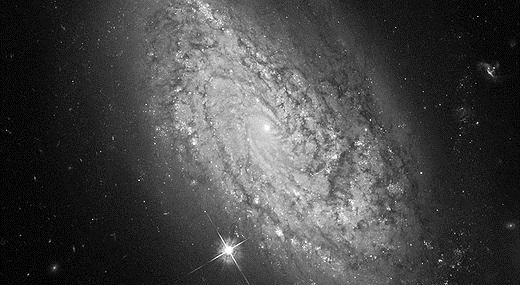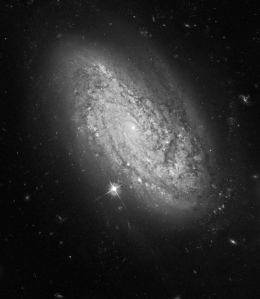
To Know Him
I remember once encouraging a friend to read the Bible. Her response? “I read that already and didn’t get much out of it.” Been there. Done that. It’s not worth my time. Life has more important things to offer.
How foolish we can be! In thinking we see, we actually become blind.
It’s one thing to know about God. It’s another thing to actually know Him. All too often our knowledge of God comes from unreliable sources.
We rely on what religious leaders tell us, because after all, they should know—they’ve given their lives to His service. (You might want to mention that to the Pharisees of Paul’s day). Or maybe we don’t trust religious leaders so we hang on the words of academic experts who, having all of the knowledge of the universe, have studied God and found Him to be no different than the many mythical creations of primitive mankind. Stephen Hawking now tells us that because gravity exists as a law, the spontaneous creation of the universe out of nothing is entirely possible. Praise be to human intelligence!
But it doesn’t just have to be religious or academic leaders. Perhaps you were once in close association with professing Christians (or even attended church for a season), but what you saw seemed to be anything but Christian. A very sad scenario indeed! But while professing Christians are certainly to be a visible expression of Christ, it’s naïve to think that they always provide an accurate representation of who God really is.
Perhaps you interpret God through your life experiences. The math equation could look like this: crappy childhood + crappy self-image + crappy neighborhood = crappy god. After all, if He was truly good and truly powerful and truly loved me, the circumstances of my life would be so much better.
And then, of course, like my old high school friend, some of us draw our picture of God based on our natural interpretations of the supernatural Scriptures. More often than not the end product is a cruel, vindictive god, who if he does exist, we really don’t want to know—at least not very closely.
So then, how do we come to know God?
It really isn’t that complicated.
The Apostle Paul wanted to know God—to really know God. He realized that the priests and other religious leaders weren’t the answer. Paul sought to know God through the Scriptures. He sought to know God through fasting. He sought to know God through prayer. He sought to know God experientially. The cry of his heart was to know God and to make Him known.
Paul tasted something that others missed; therefore he paid a price that others refused to pay.
We seek Him. We search the Scriptures. We fast. We pray. In other words, we confess our blindness, cry out for answers, and seek to overcome the gazillion desires and distractions of life; taking the time to search out the One who loves us and who loves to reveal Himself to us. We do all of these things with humble hearts, knowing that we can’t know if He doesn’t reveal Himself. And if we do these things with a willingness to align our lives with whatever He shows us, I am convinced that we will begin to know Him for who He actually is.
In making such efforts, another familiar wilderness passage then begins to apply to our lives:
‘For I know what I have planned for you,’ says the Lord. ‘I have plans to prosper you, not to harm you. I have plans to give you a future filled with hope. When you call out to me and come to me in prayer, I will hear your prayers. When you seek me in prayer and worship, you will find me available to you. If you seek me with all your heart and soul, I will make myself available to you,’ says the Lord.” Jeremiah 29:11-14a (NET)


